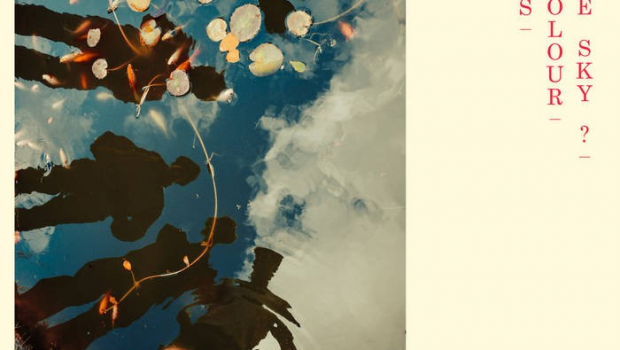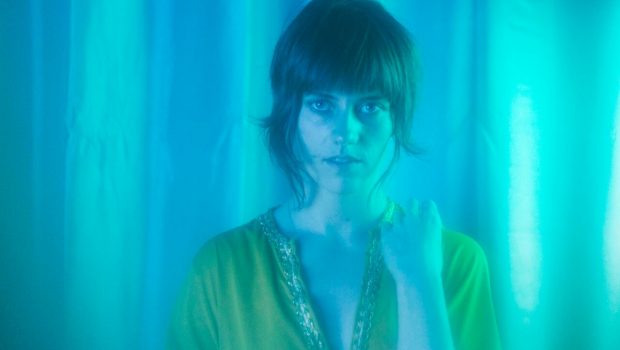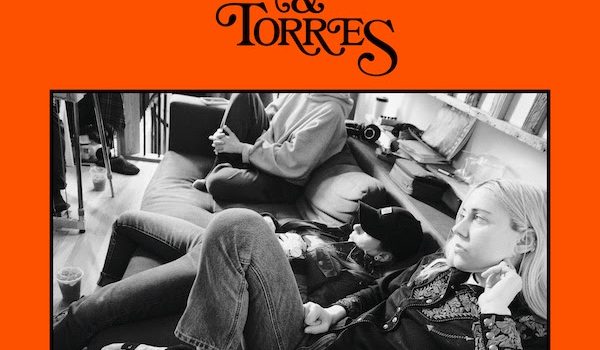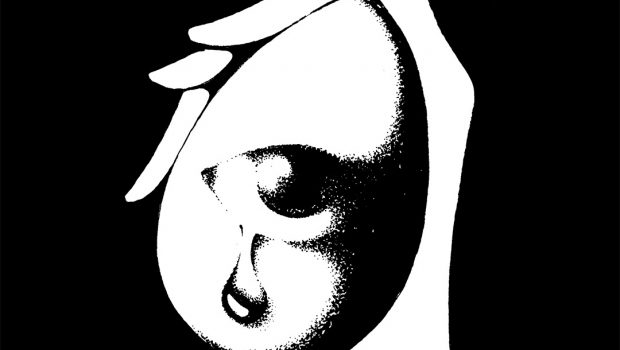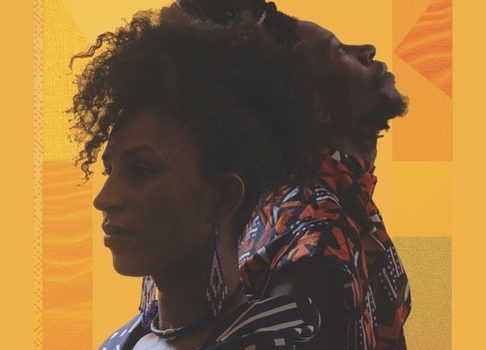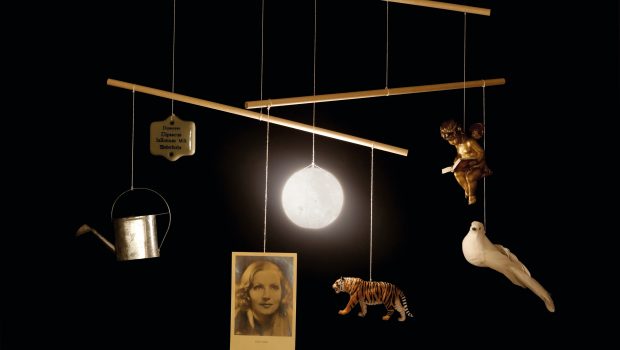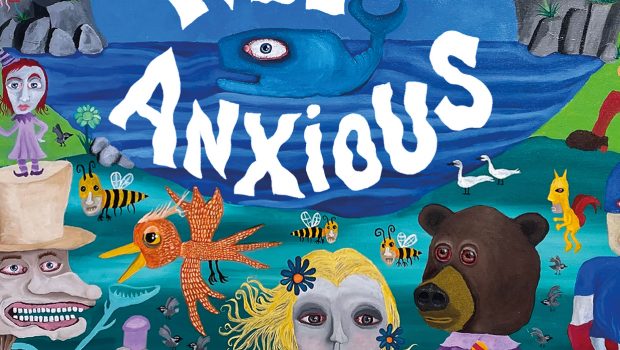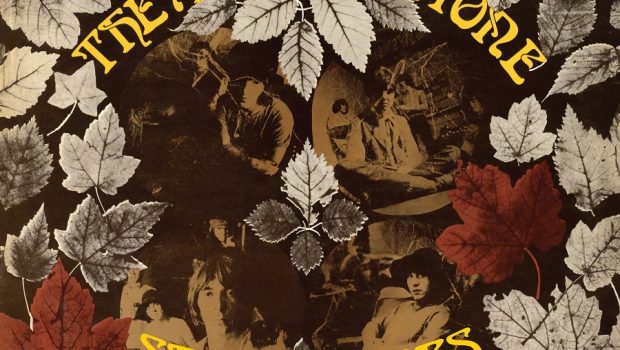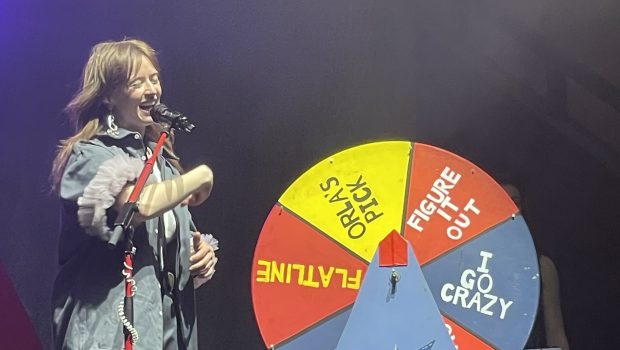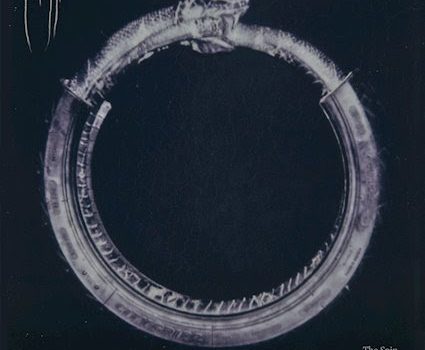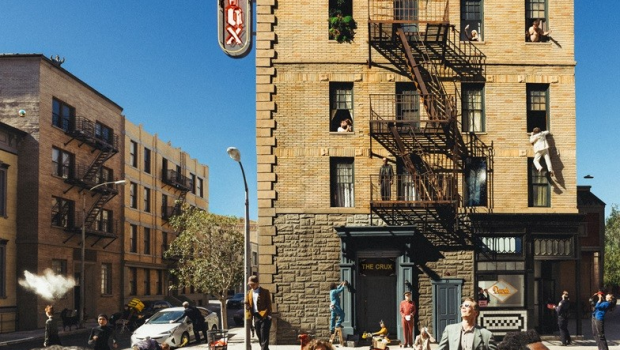 For any artist, the process of constant renewal is a challenge. Reiterating previous successes would be akin to clocking in at the office every day, repeating the same processes on a grinding daily basis. Dana Gavanski has met the challenge of her third album by deliberately trying to make herself uncomfortable. Rather than her normal guitar and voice approach, she trained herself to use Logic Pro to compose the demos for ‘Late Slap’. It is an approach that bears fruit in that though it is still recognisably a Gavanski album blessed with her distinctive voice, the collection of songs and sounds are her best yet. It is a record that embraces contradictions.
For any artist, the process of constant renewal is a challenge. Reiterating previous successes would be akin to clocking in at the office every day, repeating the same processes on a grinding daily basis. Dana Gavanski has met the challenge of her third album by deliberately trying to make herself uncomfortable. Rather than her normal guitar and voice approach, she trained herself to use Logic Pro to compose the demos for ‘Late Slap’. It is an approach that bears fruit in that though it is still recognisably a Gavanski album blessed with her distinctive voice, the collection of songs and sounds are her best yet. It is a record that embraces contradictions.
Aptly, the album starts with what could be a manifesto for her artistic outlook, ‘How To Be Uncomfortable’. It has a winning combination of an almost avant-garde guitar line and her voice ranging from the stentorian to the out-of-control with tooting saxophone and keyboard squiggles held together by an engaging melody creating the tingling sensation of discomfort being an exhilarating experience. During the song, Gavanski takes aim at the digital landscape and its numbing quality, avoiding engagement with the discomforts of the real world (“stand too close, face in your phone/ it’s scrambling your mind/ tired of your zombie glow/soaking up your eyes.”) It is influenced by Susan Sontag’s ‘Regarding The Pain of Others’ in how passivity dulls feelings and how the state described as apathy is really rage and frustration. Oddly, the other Mike Lindsay produced album I have reviewed this year (William Doyle’s excellent ‘Springs Eternal’) also namechecked Sontag’s writings, giving the sense of Lindsay as a seminar tutor issuing his students with a reading list.
Among the ten tracks there are numerous highlights. The second song, ‘Let Them Row’, is a slightly more conventional composition, despite her instruction to “let the skeletons row”. It features the Yamaha DX7 synth, an important component of ‘Late Slap’, acquired with the explicit purpose of conjuring an atmosphere of digital warmth like Beverly Glenn-Copeland’s ‘Keyboard Fantasies’. (At this stage, I would also recommend the similarly titled feature length documentary about Copeland, an amazing and heart-warming tale that also features a two-second cameo from your humble reviewer as an audience member at their Q&A.)
The title track starts with a rudimentary repeated piano note before building into a delightful set of chord and vocal progressions, her voice varying from soothing to taut, some crashing sounds add to a sense of going through the wringer. ‘Ears Were Growing’ sets off in an entirely different direction with its Talking Heads vibe. Gavanski’s verses feel so full that her voice sounds as if it is struggling to fit in with the music but that discrepancy, combined with numerous shifts in tempo and tone, makes for an exhilarating sound. ‘Singular Coincidence’ is notable for its journey from smooth groove to the incorporation of post-punk guitar and male backing vocals that make an intriguing counterpoint to Gavanski’s higher pitch.
A couple of songs are inspired by the loss of a childhood friend. To gently bubbling synths, on ‘Song for Rachel’ she tenderly sings, “Cause’ you’re gone/ it’s just that I’m lost/ and I don’t know how to feel” encapsulating how the reaction to loss and grief can be puzzling, a jumble of thoughts that appear irreconcilable. Amidst that confusion, the song manages to be emotionally spellbinding. Blessed with a subtly emotional melody, ‘Ribbons’ grapples with how the familiar is knocked out of shape (“How do I rearrange my room/ the walls are a shell/That’s opened too soon/ I can’t manage it from here”) while Gavanski’s voice sounds especially sublime.
A feature throughout is the song construction and the expert way in which elements are introduced and drop out to create extra drama and emotion. This is exemplified by ‘Dark Side’ in which the bass acts as a bridge from the gloomy keyboard to the introduction of a guitar line with a mascara brush of glam. ‘Late Slap’ closes with ‘Reiteration’, its looping guitar eventually joined by the keyboard line that brings a massive grin to my face. It makes a suitable conclusion to an album that rewards Gavanski’s risk taking. Her voice has never sounded better and the collaboration with Mike Lindsay, whose production has been a feature of many of my favourite albums of the last couple of years, works exquisitely.
Dana Gavanski: Late Slap – Out 5th April 2024 (Full Time Hobby)


